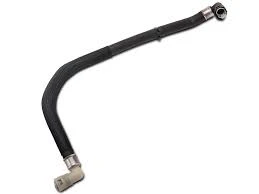hose for gas
Oct . 12, 2024 22:06 Back to list
hose for gas
Hose for Gas Essential Equipment for Safe Handling and Transfer
When it comes to the safe and efficient transfer of gas, whether it be natural gas, propane, or other gaseous fuels, hose systems play a crucial role. A gas hose is specifically designed to handle the pressures, temperatures, and chemical characteristics associated with gaseous materials. Selecting the right hose is vital for ensuring safety, compliance with regulations, and optimal performance.
Types of Gas Hoses
Gas hoses come in various types, each tailored for specific applications. The most common materials used include rubber, PVC, and thermoplastics. Rubber hoses are flexible and durable, making them suitable for high-pressure applications. PVC hoses, on the other hand, are lightweight and resistant to abrasion, making them a good choice for low-pressure applications.
Thermoplastic hoses have gained popularity due to their excellent resistance to a variety of chemicals and temperatures. They are often used in industries that require frequent cleaning and maintenance, as they can withstand harsh conditions without deteriorating.
Key Features to Consider
When selecting a gas hose, several key features must be taken into account. First and foremost is the pressure rating of the hose. Gas hoses should be able to handle the maximum operating pressure of the gas system to prevent leaks and potential explosions. Additionally, the temperature range of the hose is critical, especially in environments where extreme temperatures may be experienced.
hose for gas

Another important factor is the compatibility of the hose material with the specific type of gas being transferred. For instance, certain rubber compounds may not be suitable for propane due to potential degradation. Therefore, understanding the chemical compatibility of hose materials is essential for safe usage.
Safety Considerations
Safety is paramount when dealing with gases. Hoses should be regularly inspected for signs of wear, cracks, or other damage. Proper fittings and connections are equally important; using the right adapters and clamps can prevent gas leaks. It's also essential to ensure that hoses are stored properly when not in use to avoid exposure to environmental factors that could lead to degradation.
Moreover, adhering to industry standards and regulations is crucial. Organizations such as the American National Standards Institute (ANSI) and the National Fire Protection Association (NFPA) provide guidelines that help ensure the safe usage of gas hoses.
Conclusion
In conclusion, hoses for gas are an indispensable component of many industries, ranging from manufacturing to residential applications. By selecting the appropriate type, ensuring compatibility, and adhering to safety standards, users can mitigate risks and promote safe handling practices. Investing in high-quality gas hoses not only enhances operational efficiency but also safeguards lives and property in the process.
